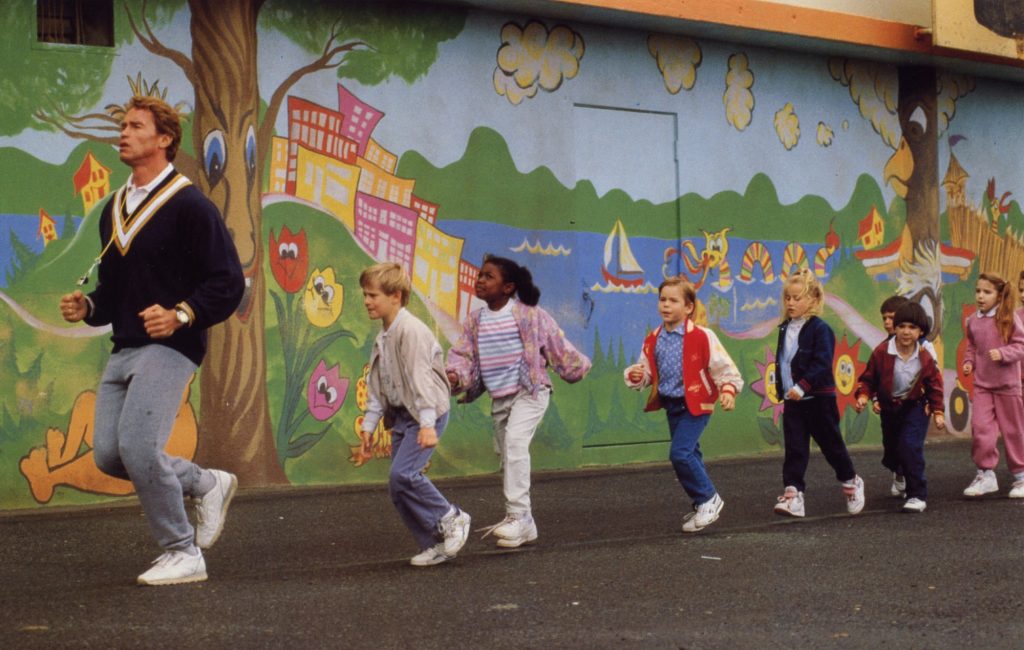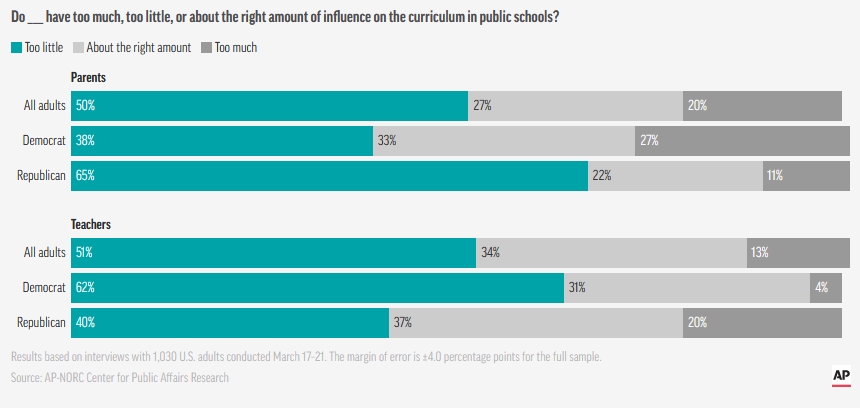New Poll Shows How Split Americans’ Views On Race And Sexual Education Are
Racism and sexuality in education are at the forefront of the battle over public schools, as a new poll weighs in on American views.

Racism and sexuality. Two topics that have found themselves front and center of massive debates in our public education system. Two topics whose controversy does not look like they will be going away any time soon. One thing we know for sure is that when asked, Americans are pretty divided on just how much and when children should be taught about racism and sexuality in K-12 grades.
In a new poll conducted by the University of Chicago Harris School of Public Policy and the Associated Press-NORC Center for Public Affairs Research, they took on the task of finding out just where Americans stood with racism and sexuality and whose influence means more. The poll comes at a time when Republican lawmakers across the nation are gearing towards the November elections and are making the involvement of parents in their children’s education their central campaign theme. The poll’s goal is to see just how much work if any, they have left to do.
Overall, the numbers don’t appear to be doing Republican lawmakers any favors. When it comes to both racism and sexuality, Americans are leaning toward wanting slightly more expansion of these discussions in classrooms and not less. 23% of Americans share many Republican lawmakers’ views concerning the teaching of sexual identity in public schools saying they feel their local public schools focus way too much on sex and sexuality. 31%, though, feel that schools focus too little on the subject.

When it comes to racism, the numbers are just as telling as they were with sexuality. 37% of the polled feel that public schools discuss this issue in just the right amount. 27% think their children’s schools put too much emphasis on talking about racism. 34% of those polled feel that the public schools do not talk enough about racism.
When it comes to books in libraries, most Republicans and Democrats polled appear to be on the same page. They do not agree that books that speak about racism and sexuality should necessarily be pulled from the shelves. They also don’t feel taking these sources away from teachers is the best move either. What the poll also showed is that there is a very sharp divide on two other subjects surrounding racism and sexuality. Partisan lines are drawn when it comes to the renaming of schools that are named after historical figures that supported segregation or slavery. The same goes for allowing transgender students to use the bathrooms in schools that match the students’ preferred gender identity.
The poll also discussed issues not related to racism and sexuality. Americans were asked about influence and who, if anyone, should have more between parents and teachers. School curriculum has been a point of contention with parents asking for more transparency and teachers saying parents should have no say so in what teachers teach, nor should they see the school or classroom curriculum.

Those polled, though, feel both parents and teachers have too little influence on classroom curriculum, regardless if it is racism and sexuality oriented. In fact, half polled feel parents have too little influence, while slightly over half say teachers don’t have enough influence. When broken down by party, 38% of Democrats feel parents have too little influence while 65% of Republicans say parents don’t have a big enough voice concerning school curriculum.
The numbers, as one would imagine, are almost opposite when it comes to teachers’ influence. 62% of Democrats feel that teachers do not have enough influence on the school curriculum while only 40% of Republicans feel the same way. 20% of Republicans feel teachers have way too much influence on what goes on in the classrooms while only 4% of Democrats feel teachers wield too much control.

It should be noted that the poll conducted by the University of Chicago Harris School of Public Policy and The Associated Press-NORC Center for Public Affairs Research was based on telephone and online interviews. Pollsters used landlines and cell phones. Overall, 1,030 adults were polled.
These discussions of racism and sexuality surrounding America’s children are not going to go away anytime soon. In fact, as we move closer and closer to that November date, you can expect discussions to get even more debated and heated given all the bills either passed or in legislation right now. What an interesting month November looks to be.



